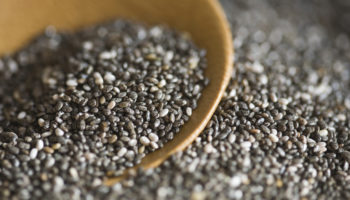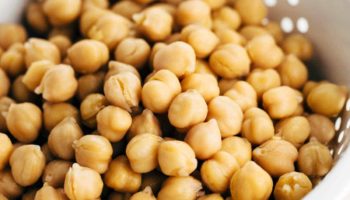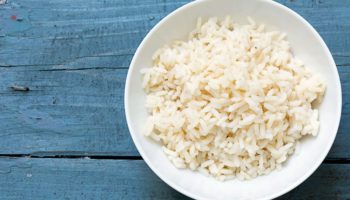Where do you get your protein as a vegan? Well chia seeds, beans, lentils, pumpkin seeds and hemp seeds are all my favorites when it comes to foods.
However, protein powder is another excellent way to get this macronutrient into your diet. There’s a big difference between different brands and types, so I decided to create a little (or if I may say so myself, the ultimate) protein powder guide for you.
First and foremost, what is protein powder?
Protein powder is a common supplement that provides a concentrated amount of dietary protein. There are both plant and animal sourced protein powders.
Most people take protein powder looking to build muscle mass and maximize fat burning, but protein powders can also be a useful way to increase protein intake for those who may have difficulty meeting their needs, such as vegans and vegetarians.
Common Forms of Protein Powder
PROTEIN CONCENTRATES: This type of protein powder is made by extracting protein from whole food sources, resulting in a final product that contains 60–80 percent of calories from protein with the remaining calories from fat and carbohydrates.
PROTEIN ISOLATES: Protein isolates are further filtered to remove much of the fat and carbohydrates, resulting in a more highly concentrated form of protein powder. In general, protein isolates typically contain between 90–95 percent protein.
PROTEIN HYDROLYSATES: This form of protein powder undergoes a process that breaks the bond between amino acids, creating a type of protein that is more easily absorbable by your body.

Quality Protein Powder vs. Protein Powder with Fillers
Not all protein powders are created equally. Many are full of fillers and other added ingredients plus they often have very misleading labels. In fact, a slew of recent lawsuits have found that many popular brands of protein powders actually contain less than half of the amount of protein listed on the label.
Skip the scams and go for natural, high quality powders with a minimal amount of total ingredients and make sure that those are natural and organic.

What protein powders are out there?
Here’s the list of the most common types of protein powders on the market. I’d recommend going with any of the first three since they are plant-based and so much better and kinder to our planet.
💚🌍
HEMP PROTEIN POWDER |
Hemp protein powder is perfect for those looking to boost protein intake to gain muscle mass and strength while also reaping the nutritional benefits of the hemp seed, including its high fiber and omega-3 fatty acid content. Oh and don’t worry, it contains little to no tetrahydrocannabinol, or THC, the cannaboid responsible for making one high.
Easily Digestible. Hemp protein powder is an easily digestible form of protein, meaning your body is able to metabolize and utilize more protein to get you closer to your goals.
Contains Heart-Healthy Fats. Unlike other protein powders, hemp protein powder stands out because it contains a hearty dose of omega-3 fatty acids, a type of heart-healthy fat that’s been linked to decreased inflammation, improved heart health and better brain function.
Plant-Based.
Rich in Fiber. Hemp seeds are loaded with beneficial fiber. Besides supporting regularity, fiber can also lower cholesterol levels, stabilize blood sugar and even enhance weight loss.
PEA PROTEIN POWDER |
This protein comes from the yellow split pea and contains a good amount of nearly all of the essential amino acids to be a complete protein. Pea protein works well for those looking to increase muscle growth while also curbing cravings and decreasing appetite, making it a contender for the best protein powder for weight loss.
Boosts Muscle Growth. One study in the Journal of the International Society of Sports Nutrition found that pea protein was equally effective as whey protein at increasing muscle thickness when combined with resistance training.
Reduces Hunger. Pea protein can help increase the levels of specific satiety hormones to keep you feeling full and decrease hunger.
Plant-Based.
Lowers Blood Pressure. In addition to kicking up your protein intake, pea protein may also help keeping your blood pressure in check.

BROWN RICE PROTEIN POWDER |
This protein contains all of the essential amino acids that your body needs. It’s plant-based, high in fiber and contains additional micronutrients like iron, calcium and vitamin C, all of which provide it with an added boost of health benefits.
Aids in Weight Loss. According to an animal model out of China, brown rice protein includes specific peptides that were shown to reduce weight gain in hamsters.
Promotes Muscle Building. One study in the Nutrition Journal showed that brown rice protein powder was as effective as whey protein powder at improving body composition and exercise performance.
Regulates Blood Sugar. Thanks to the high fiber content of brown rice nutrition, brown rice protein powder has been shown to help regulate blood sugar levels in some animal models.
Lowers Cholesterol. High levels of cholesterol can build up in the bloodstream, causing arteries to narrow and thicken, plus upping the risk of heart disease. Some animal studies have found that brown rice protein could cut cholesterol levels to reduce your risk of heart disease.
Plant-Based.

SOY PROTEIN POWDER |
Soy is a complete protein and has been cultivated as a food for thousands of years in asia. It’s pretty bland in flavour, making it great for mixing into dishes and drinks without altering too much with the flavour.
Can boost immunity and promote bone health.
May prevent cardiovascular disease.
GMO warning. In recent years, soy has come under heavy scrutiny because it is often genetically modified to produce greater crop yields.
Might mess with your hormone levels. Some research has also singled out soy due to its effects on hormone levels. Many foods are already full of soy due to its extremely low-cost protein. This has led some to question whether adding even more dietary soy (via protein supplements) is a wise choice.
Plantbased.

BONE BROTH PROTEIN POWDER |
Bone broth is made by simmering different parts of animals, including bones and connective tissues, into a nutrient-rich broth, which can then be dehydrated and concentrated into a protein powder.
Rich in Collagen. As the most abundant protein in your body, collagen plays a central role in the health of your hair, skin, joints and nails. Getting enough of this protein is key to many aspects of health, especially as you start getting older.
Promotes Skin Health. Collagen levels drop as you age, resulting in symptoms like saggy skin and wrinkles. Studies show that supplementing with a collagen-containing supplement like bone broth protein powder could improve skin elasticity and skin moisture in older adults.
Enhanced Immune Function. Some research suggests that protein powder made from bone broth can reduce inflammation to give your immune system a hearty boost and reduce the risk of conditions like leaky gut syndrome.
Relieves Joint Pain. Supplementing with collagen, one of the primary ingredients found in bone broth protein powder, has been shown to reduce activity-related joint pain in athletes.

COLLAGEN PROTEIN POWDER |
As the most abundant form of protein in the body, collagen is found in the muscles, skin, bones and blood vessels. However, collagen levels begin to slowly decline as you get older, resulting in symptoms like joint pain, wrinkles and hair loss. Taking a collagen supplement is an effective way to boost collagen levels and reverse the symptoms of aging to improve health and quality of life.
Decreases Joint Pain. Collagen can help increase the synthesis of cells in the extracellular matrix to reduce joint pain and improve symptoms of arthritis.
Prevents Leaky Gut. Leaky gut syndrome is a condition caused by increased intestinal permeability resulting in symptoms like inflammation, decreased immunity and nutritional deficiencies. One study in Food & Function found that collagen can improve intestinal barrier function and protect against leaky gut syndrome.
Promotes Hair and Skin Health: As the building block of the hair, skin and nails, some studies show that collagen supplementation could be therapeutic against hair loss and skin-related conditions.
Improves Liver Function: Collagen is rich in a type of amino acid called glycine, which has been shown to preserve liver function and protect against liver injury in some animal studies.

WHEY PROTEIN POWDER COLLAGEN PROTEIN POWDER |
Whey protein is a natural derivative of dairy, as it is formed when milk separates into cheese. As the milk separates, it forms curds (solids) and whey (liquid). The whey liquid is where whey protein powder comes from. It is then taken off, filtered, processed, and undergoes various treatments, until it becomes protein powder.
Promotes glutathione. Grass-fed whey has high amounts of cysteine, which helps the liver make glutathione (master antioxidant and major detoxifier!)
Complete protein. Stimulates muscle growth and maintenance.
When not organic/poorly sourced; there is potential for contamination with hormones, antibiotics, heavy metals.
Made in such a way that; It’s often heated and refined, which denatures proteins, destroys nutrients and eradicates growth factors.
You are not a calf so; dairy is a common allergen, those with sensitivities may experience cramping or bloating, poor digestion or inflammation.

CASEIN PROTEIN POWDER |
Casein is also derived from milk, but the solids rather than the liquids. Casein protein is best used directly before going to bed, because as it’s so slow to digest and breakdown, it releases a steady stream of protein and amino acids into the body whilst you sleep, keeping your body in an anabolic state and preventing muscle loss.
Pre bedtime snack. Casin is very simmilar to whey, the only major different is that it’s slow to digest.
Not ideal for post-workout; because of the slow digestion.
You are still not a calf; so maybe drinking something from a cow’s tits are not the healthiest? I included a picture below, so i think we without a doubt can say that we as a spices are very different from cows. They are very cute though.

How to Use Protein Powder.
The possibilities of protein powder extend way beyond sticking a scoop in your morning smoothie or shake. In fact, you can easily add protein powder to everything from baked goods to oatmeal dishes to smoothie bowls and more. Stick to a single serving right after working out to maximize muscle gain, or enjoy it throughout the day in your favorite snacks if you’re looking to increase your caloric intake and use protein powder for weight gain.
A little note so you don’t go cray cray:
It’s important to keep in mind that more is not always better when it comes to protein powder. Overdoing it can lead to protein powder side effects like weight gain, bone loss, kidney damage and liver problems.



